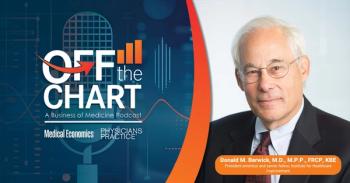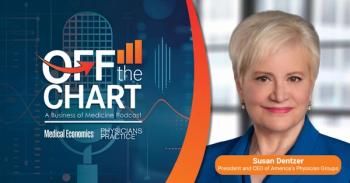
Can Private Practices Survive Health Reform Under the ACA?
There is clear frustration on the part of private practice physicians over healthcare reform, but as for the end of life as they know it, that's a bit murkier.
Credit suspense novelist Robert Harris with the following observation: As with the implosion of a building following the detonation sequence, there is often a pause between the cause of human calamity and inevitable collapse. So it is with healthcare reform. The re-election of President Obama earlier this month seems to many to be the final charge to detonate. We now pause, awaiting the collapse. But is this necessarily the end of private practice?
Physicians in private practice have understandably been pessimistic about the future. In 2010, the Physicians Foundation and Merritt Hawkins published a white paper entitled
The paper included a survey of 100,000 physicians and arrived at number of conclusions:
1. This time, reform will not be a “false dawn” analogous to the health reform movement of the 1990s, but will usher in substantive and lasting changes.
2. The independent, private physician practice model will be largely, though not uniformly, replaced.
3. Most physicians will be compelled to consolidate with other practitioners, become hospital employees, or align with large hospitals and health systems for capital, administrative and technical resources.
4. Reform will exacerbate physician shortages, creating access issues for many patients. Primary care shortages and physician maldistribution will not be resolved. Physicians will need to redefine their roles and rethink delivery models in order to meet rising demand.
5. The omission in reform of a “fix” to the Sustainable Growth Rate (SGR) formula and of liability reform will further disengage doctors from medicine and limit patient access. The SGR formula is unlikely to be resolved by Congress and probably will be folded into new payment mechanisms sometime within the next five years.
It appears from the white paper that most of the physicians responding to the survey share a similar fear: Obamacare will lead to substantially more Medicaid patients, but no profit. It is as if Saturday Night Live’s
The Affordable Care Act was supported by many hospital associations, because it provides much needed relief. For years, hospitals have been required to treat uninsured emergency room patients, regardless of ability to pay. The reform law contains relief provisions, by making make more people eligible for Medicaid. But this does not affect physicians, the majority of whom believe health reform will increase their patient loads while decreasing the financial viability of their practices.
Adding to the decline of private practice, the white paper notes that the law’s payment models under Shared Savings Programs, or ACOs, will force physicians to sell their practices to hospitals, or larger groups; or simply become employees of hospitals or institutions. It is simply too expensive for small practices to keep up. Sixty-eight percent of those responding believe that health reform provisions such as shared savings will decrease the viability of their practices.
While the survey results reveal grim predictions, I must believe that reports of the complete demise of private practice will prove to be exaggerated. Congress simply must address the issue of the SGR formula which punishes doctors by cutting reimbursements to offset Medicare spending. Further, physicians are nothing if not a hardy bunch, most of whom are motivated by a desire to help people. Far from running away, unfairness, excessive demands on their time, and hassles are what physicians seem to be drawn toward.
It may very well be, then, that a fair reading of the survey reveals more frustration than an indication that the detonation charges have been set off, and collapse of private practice is a foregone conclusion.
Next week, I'll explore how private medical practices can succeed in a post-Affordable Care Act world.
Newsletter
Optimize your practice with the Physicians Practice newsletter, offering management pearls, leadership tips, and business strategies tailored for practice administrators and physicians of any specialty.






